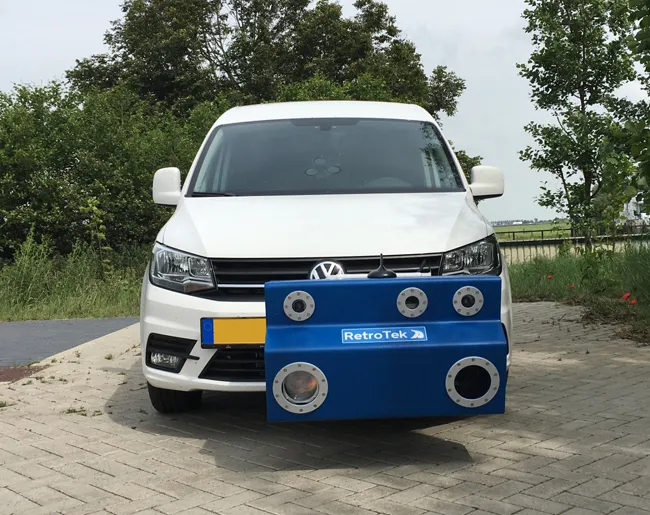Evonik Industries recently hosted an award ceremony at the Residence of the German Ambassador in Thailand’s capital Bangkok. Evonik used the event to present the “Evonik Road Safety Award” to the Department of Rural Roads, Thailand (DRR). This is in recognition for the DRR’s contributions to road safety in Thailand, especially in rural areas.
November 18, 2016
Read time: 3 mins
Granted this year for the first time, the “Evonik Road Safety Award” is designed to support sustainable road safety initiatives and projects worldwide. This forms part of the company’s corporate and social responsibility. Evonik advocates good social development in all its global sites and supports charitable undertakings that raise the quality of life. With HE Rolf Schulze, German Ambassador, Dr Florian Kirschner, Country Head of Evonik Thailand, and Jochen Henkels, Business Director of Evonik Road Marking, presenting the award to DRR for its infrastructure project ‘Increase Children Safety – School Zones’. This represents Evonik’s recognition of the DRR’s contribution on boosting road safety in 3,000 school-zones in rural areas in Thailand.
According to the World Health Organisation (WHO), Thailand ranks among the countries with the highest number of traffic fatalities/head of population. Many of the roads in Thailand, especially in rural areas, are suffering from poor pedestrian safety conditions. Footpaths have not been built and pedestrians are forced to walk on dirt paths, which can easily cause fatal road crashes. Even in school-zones, children are risking their lives daily to reach schools, as reports show that pedestrian accidents mostly involve children under the age of 10, particularly during the school term.
To improve the children’s safety in school-zone areas, DRR began its road safety pilot project at Nonthaburi province in 2013. Besides implementing speed limitations, visual communication to create awareness was key in DRR’s considerations. Through the installation of edge lines, coloured anti-skid rumble stripes and pedestrian crossings based on MMA cold plastic-based road markings, the DRR has successfully raised awareness of traffic participants. Students, as well as pedestrians, are now better guided, vehicles speed have also been reduced significantly and public transportations run smoothly and safely.
Surveyed students and parents strongly agree that the installation makes the way to and from school safer. With such a successful outcome of the project, this innovative, sustainable and environmentally-friendly solution has already been applied countrywide across more than 700 schools, and will be extended to 3,000 rural schools in the near future. With €10,000 cash prize associated with the award, DRR has asked Evonik to donate it to Queen Sirikit National Institute of Child Health as part of the project’s objective to boost child and adolescent safety in the country.









